December 24' Update
When Generative AI Powers False Narratives
Generative AI has made it easier than ever to produce false information and fake content at scale, without requiring advanced technical skills. Thomas Sparrow, a correspondent in Germany, media trainer and fact checker who sits on our Advisory Council, shares with us his observation on disinformation and why he thinks schools should strengthen their focus on critical thinking and media literacy to empower students in tackling today’s disinformation.
As schools discuss how to responsibly navigate the world of artificial intelligence, one question is becoming more and more relevant: how to deal with AI-enabled or created disinformation. From AI generated pictures and videos to fake robocalls, social media users --and among them young adults-- are increasingly finding it difficult to differentiate what's true and what's not. Clearly, disinformation is not a new phenomenon, but the development of generative AI has been described as a booster or a disinformation amplifier, which becomes a particularly problematic challenge in times of political uncertainty, of wars and conflicts, of economic trouble. It seems more important than ever for citizens -and especially young adults- to make informed decisions, but it's also -some could argue- more difficult than ever to find reliable, fact-based information.
In the past few years, I have visited many different types of schools in several countries to help teachers, parents and school authorities understand the challenge of disinformation and find responsible, lasting ways to equip young adults with tools that can help them differentiate fact from fiction, especially -but not only- in the age of AI. So far, in several of the schools I have visited, my general impression is that these problems are mostly discussed intermittently, for example as part of school project days at the end of term or when a journalist is invited to give a talk. But if young adults are to leave school with tools that can guide them through this information chaos, tackling disinformation should be part and parcel of the school curriculum, just as with any other subject. At Good Future Foundation's recent Professional Development day at Felsted School, I was honoured to lead a discussion with teachers from around 20 different UK schools on how a sustainable approach could be implemented. I look forward to engaging in more similar discussions in 2025 with Good Future Foundation!
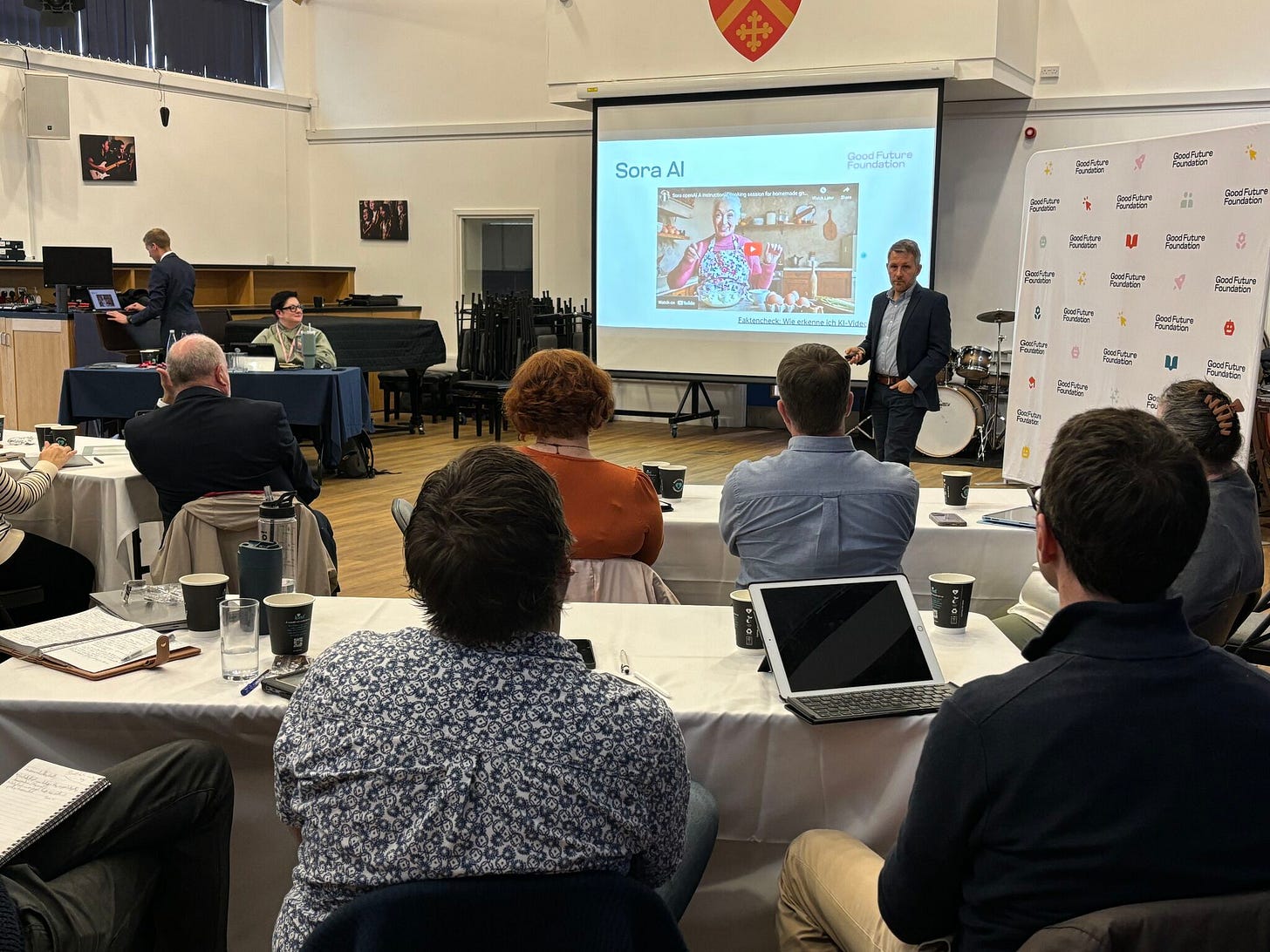
Good Future Foundation at the Reimagining Assessment Symposium
AI isn’t just another tech tool for the classroom; it’s changing the way students learn and process information, and requires deeper conversations across the education sector. Good Future Foundation had the pleasure to join Merrick-Ed’s inagural “Reimagining Assessment - Bringing Equity to All Curriculum Areas” symposium where our Executive Director, Daniel Emmerson discussed the impact of AI and the importance to rethink how we approach curriculum and assessment. During his talk, Daniel talked about the importance of responsible use and best practice, highlighting key considerations that schools should take into account as part of their day-to-day use. He also talked through the work of the foundation to date, which prompted more schools to begin their AI Quality Mark journey.
The symposium brought together various voices from the field, including three practitioners who shared their very different approaches on assessment, and the Dance Adjudication Network who showed us how comparative judgment works in Olympic breakdancing. All these reveal the dynamic possibilities for assessment beyond traditional academic settings.
Following this event, Victoria Merrick, CEO and Founder of Merrick-Ed, shared her reflection on the symposium and its implications.
What does it take to ‘reimagine assessment?’
This is not simply about reform, a process of tinkering with existing systems. It's not about remoulding familiar shapes into slightly different forms. Nor is it about revisiting past practices or reviewing outdated policies. Reimagining assessment demands a profound shift in perspective, a leap into the unknown. It requires us to shed the constraints of the present and envision a future where assessment truly serves the needs of all learners.
Having posed this complex question to the sector, over 100 education leaders made the trip to AWS in London from across the UK to explore possibilities in a focused, collaborative environment, prompted by an agenda of celebrated experts and practitioners.
What was our goal? To upskill and support education leaders and decisions makers to revisit their approach to curriculum and assessment design, embracing innovation at this crucial inflexion point in the education landscape.
Curating an event such as this, to achieve the tone we wanted, required us to identify distinct values: iterative, humility and growth mindset. The symposium's design prioritised fostering a culture of continuous learning and growth. Speakers were chosen not only for their expertise but also for their willingness to share their experiences and engage in collaborative dialogue. An emphasis on humility and a growth mindset ensured that the event would be a space for collective learning and development, rather than a platform for self-promotion or the dissemination of fixed solutions.
Mary Myatt, renowned author, described the event as “one of the best” she had attended, reflecting on the unique perspective taken on the day – that not one of us has the answer, but with humility, collaboration and a growth mindset, we can “focus on what’s working, be honest about the ongoing work that needs to be done and have a collective endeavour to learn from one another”.
So almost a month on, what questions are we asking ourselves now?
What does it take to be able to reimagine assessment in each of our contexts?
This necessitates a unique blend of skills, attributes, and unwavering discipline – a commitment to challenging the status quo, embracing innovation, and cultivating a deep understanding of the evolving needs of our students and the world they will inherit.
What agency do education leaders have to affect change?
Agency for education leaders lies in recognising and leveraging their sphere of influence, understanding which aspects of the system they can directly impact, while acknowledging the constraints and limitations beyond their immediate control. The key here is knowing that there is opportunity to change the system from within.
What might the future of assessment look like?
What we do know is that often, our current internal practices are not always capturing holistic pupil learning with authenticity. Subject disciplines such as the creative arts, design & technology, performing arts, physical education are often left out in the cold. By embracing methodologies such as adaptive comparative judgement and exploring multi-modal approaches to assessment that harness the power of AI to truly understand our pupils as critical thinkers, creative problem solvers, communicators and designers/innovators in their own right, we have the potential to challenge entrenched reductive assessment practices.
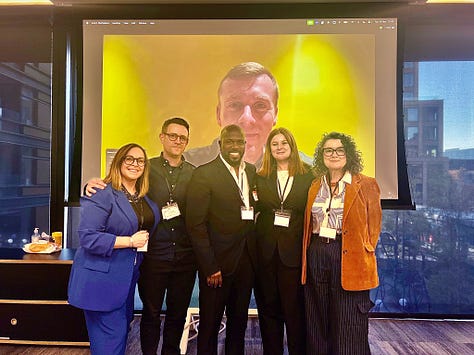
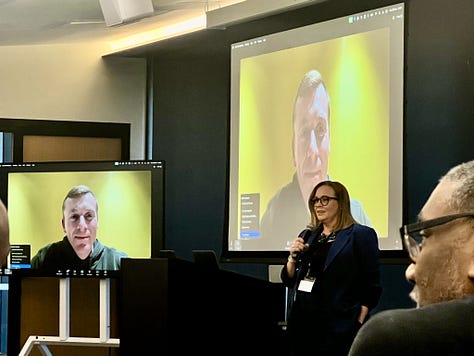
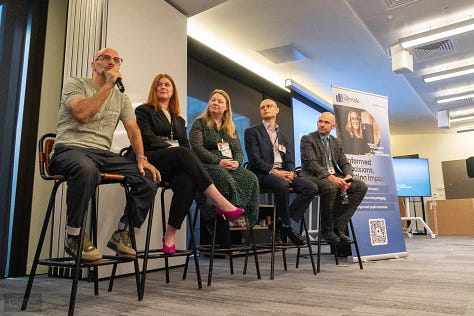
Partnering with Educate Ventures Research for AI Professional Development
We’re so excited to announce our partnership with Educate Ventures Research to deliver AI professional development across the UK in 2025!
Founded by Prof. Rose Luckin, Educate Ventures Research is a leading consultancy that helps education institutions integrate AI through evidence-based, research-driven approaches. Our collaboration emerged naturally through shared values for responsible AI use in education.
The joint initiative will offer in-person, hands-on workshops designed specifically for non-fee-paying schools. The programme will focus on building educators confidence in AI implementation, exploring practical AI tools and applications while promoting responsible use and strong safeguarding practices.
Please register in the link below if you are interested in joining or hosting the professional development event in your region.
Momentum Builds for the AI Quality Mark
We’re seeing growing interests in the AI Quality Mark! From primary schools to all-through institutions, single academies to multi-academy trusts, schools at various stages of their AI journey are reaching out to learn more. Whether they’re just beginning to explore AI or already implementing it, we’re here to guide them through our assessment framework and accreditation process and to provide the support they need.
This month, we’re proud to welcome 11 new schools and academy trusts to the AI Quality Mark programme:
Maritime Academy Trust
Brentwood School
Roding Valley High School
Liverpool Diocesan School Trust
The Beacon CE Primary School
Dean Close School
Big Education
ICS Ghana
Forest School
The James Hornsby School
Tring School
If you are keen to learn more, please visit our website and sign up below to discuss further with us. We will also be sharing more about this framework on a webinar hosted by CAS AI Community on 27 Mar 2025.
Foundational Impact Podcast: AI and Human Skills in Healthcare and Legal Sector
This month’s Foundational Impact brings together healthcare leader Esen Tümer and legal expert Professor Anselmo Reyes to discuss how AI is impacting their fields and what matters most for future-ready education. They both share the same view that AI could excel at routine tasks, but it can’t match human emotional intelligence and ethical judgment. As we teach students to work with AI, we need to create more space for developing these irreplaceable human qualities. Listen to these episodes now on all major podcast platforms to learn how we can better prepare the next generation!
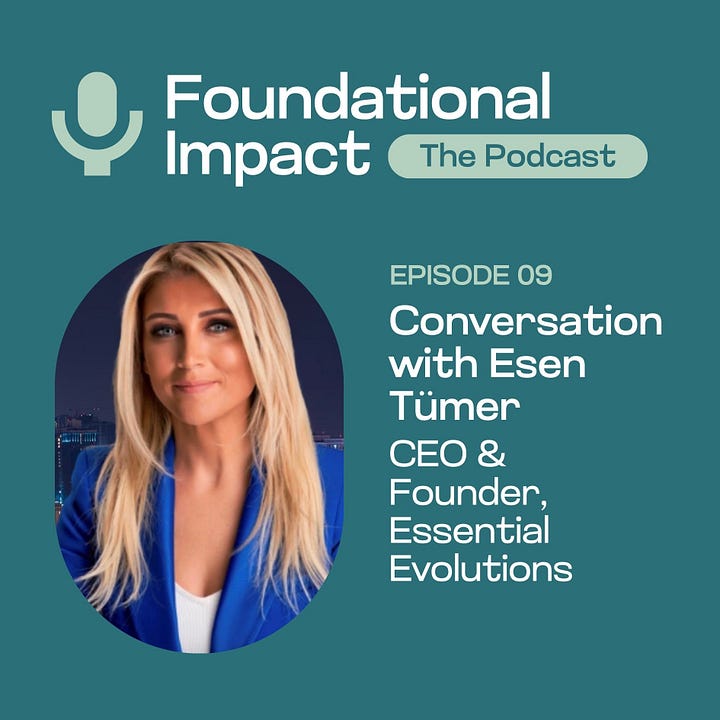
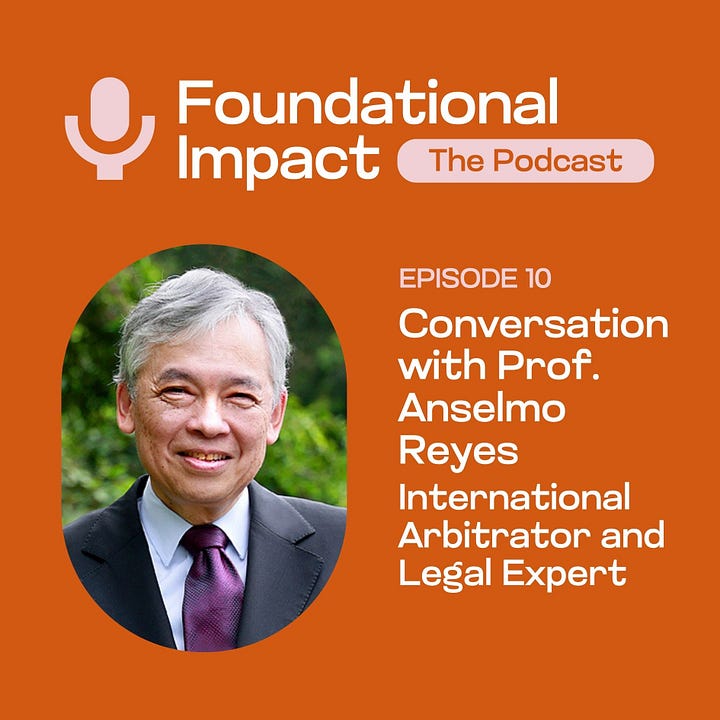
Good Future Foundation Website Refresh
We have recently revamped our website to better showcase our initiatives. The new design offers clearer navigation of our programmes. Visit us to explore our updated content and discover how we’re supporting schools in their AI journey.
As we wrap up 2024 and look forward to 2025, we want to wish you all a wonderful year ahead. We're excited to continue supporting schools in their AI journey, and we'd love to expand our community.
Do you know any schools that might benefit from the AI Quality Mark? We'd be delighted to connect with them. Please feel free to share our contact information, and we're always happy to set up an initial call to discuss how the Quality Mark could support their AI development.







